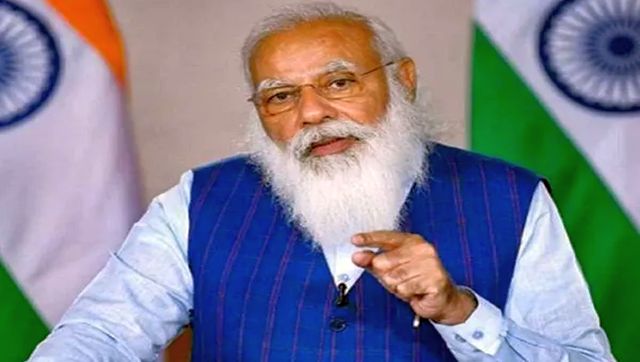Prime Minister Narendra Modi on Monday launched PM Ayushman Bharat Health Infrastructure Mission in Uttar Pradesh’s Varanasi.
Varanasi: PM Narendra Modi launches 'PM Ayushman Bharat Health Infrastructure Mission & Release of Operational Guidelines'. pic.twitter.com/dA0rHJyhDO
— ANI UP/Uttarakhand (@ANINewsUP) October 25, 2021
The PMASBY will be one of the largest pan-India scheme for strengthening healthcare infrastructure and will be in addition to the National Health Mission. Its objective is to fill gaps in public health infrastructure, especially in critical care facilities and primary care in both urban and rural areas. Earlier in the day, the prime minister virtually inaugurated nine medical colleges from Siddharthnagar in Uttar Pradesh. The medical colleges have been built at a cost of Rs 2,329 crore and are located in the districts of Siddharthnagar, Etah, Hardoi, Pratapgarh, Fatehpur, Deoria, Ghazipur, Mirzapur and Jaunpur. “With the creation of nine new medical colleges, about two and a half thousand new beds have been created, new employment opportunities have been created. Purvanchal will now be the new medical hub of the country,” the prime minister said while addressing a gathering.
#WATCH | PM Narendra Modi began his speech in Bhojpuri at the inauguration of nine medical colleges in Siddharthnagar. pic.twitter.com/gGIet0tfaw
— ANI UP/Uttarakhand (@ANINewsUP) October 25, 2021
Addressing a public meeting in Siddharthnagar. https://t.co/LDnCxX9Flb
— Narendra Modi (@narendramodi) October 25, 2021
Objective of PMASBY It further said that the objective of PMASBY is to fill critical gaps in public health infrastructure , especially in critical care facilities and primary care in both urban and rural areas. It will provide support for 17,788 rural Health and Wellness Centres in 10 High Focus States. Further, 11,024 urban Health and Wellness Centres will be established in all the states. Critical care services will be available in all the districts of the country with more than five lakh population, through Exclusive Critical Care Hospital Blocks, while the remaining districts will be covered through referral services. People will have access to a full range of diagnostic services in the Public Healthcare system through a network of laboratories across the country. Integrated Public Health Labs will be set up in all the districts. Under PMASBY, a National Institution for One Health, four new National Institutes for Virology, a regional research platform for WHO South-East Asia Region, nine Biosafety Level III laboratories, five new Regional National Centre for Disease Control will be set up. PMASBY targets to build an IT enabled disease surveillance system by developing a network of surveillance laboratories at block, district, regional and national levels, in Metropolitan areas. Integrated Health Information Portal will be expanded to all States/UTs to connect all public health labs. PMASBY also aims at the operationalisation of 17 new public health units and the strengthening of 33 existing public health units at points of entry, for effectively detecting, investigating, preventing, and combating Public Health Emergencies and Disease Outbreaks. It will also work towards building up a trained frontline health workforce to respond to any public health emergency. Strengthening public health infrastructure Nine medical colleges to be inaugurated are situated in the districts of Siddharthnagar, Etah, Hardoi, Pratapgarh, Fatehpur, Deoria, Ghazipur, Mirzapur and Jaunpur. Eight Medical Colleges have been sanctioned under the centrally sponsored scheme for “establishment of new medical colleges attached with district/referral hospitals” and one medical college at Jaunpur has been made functional by the state government through its own resources. Under the centrally sponsored scheme, preference is given to underserved, backward and aspirational districts. The scheme aims to increase the availability of health professionals, correct the existing geographical imbalance in the distribution of medical colleges and effectively utilise the existing infrastructure of district hospitals. Under three phases of the scheme, 157 new medical colleges have been approved across the nation, out of which 63 medical colleges are already functional. With inputs from agencies


)

)
)
)
)
)
)
)
)



